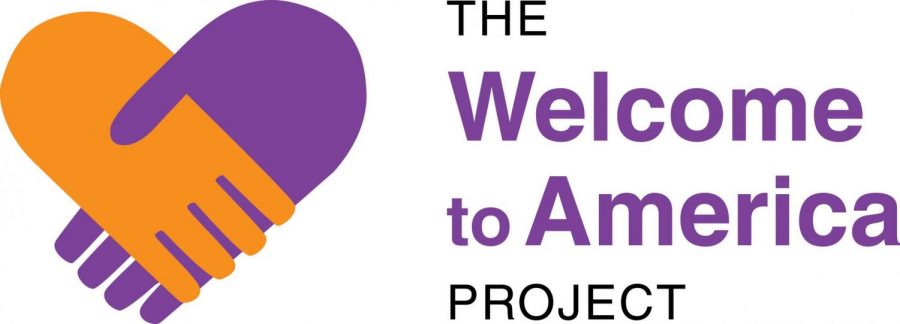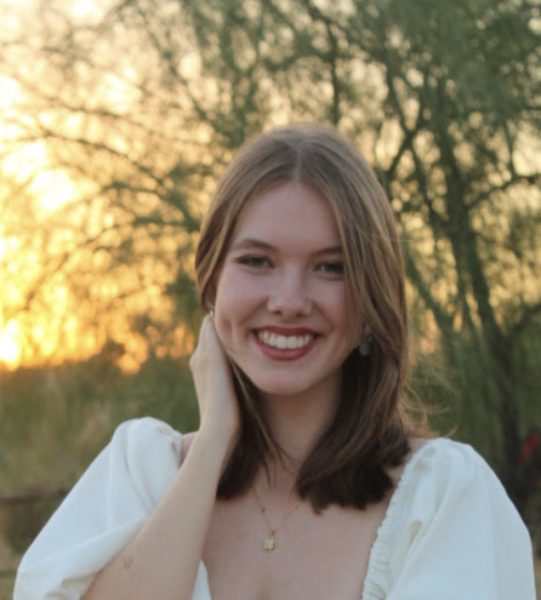Resilience
DM club partners with group to help refugees gain self-sufficiency
Courtesy of Welcome to America
SHARING- The Welcome to America Project helps provide refugees with clothes, information, furniture, toys and food. “Our thing isn’t just give stuff give stuff, it’s just sharing,” said Mike Sullivan, Agency Director of The Welcome to America Project, which has partnered with the International Baccalaureate Student Association at DM for the past few years. To learn how you can make a difference through the Welcome to America project, visit wtap.org.
December 29, 2020
At about the age of 5, Naruro Hassan left war-torn Somalia and arrived in a refugee camp in Kenya.
“My friends became my family,” said Hassan. Living there for about 12 years, her mother had found her and brought her back to America. Hassan became a full-time activist after Trump was elected.
Her political science class at Arizona State University discussed how they felt about the election. “Tearing up crying, I couldn’t even talk,” said Naruro, who spoke to DM’s International Baccalaureate Student Association last month about her experiences. “It was a person who was attacking my identities in and out. I am a black woman, an African woman, I’m Muslim, I am a refugee.
“I am not a passive victim of oppression but an active resistance to injustice everywhere. I refuse to just sit while my human rights are being taken away,” said Hassan. So every day since then Hassan has protested and spoke out.
Hassan works closely with the Welcome to America Project, which has partnered with the IBSA to help refugees new to the United States. Its goal is to “turn fear into hope,” said Mike Sullivan, agency director of the Welcome to America Project. “We try and focus on not what a refugee is but who.”
Many people fear refugees, explained Sullivan. “So we try to humanize the experience for the community so they’re not just accepting but embracing and hopeful of refugees on their journey.”
Hassan, who has been in Arizona for about five years, said most people perceive refugees as “grown people who are attacking something”.
They couldn’t be more wrong.
“The reality is most refugees are kids,” Hassan said, “kids who were separated from their families.
“And I was one of those kids.”
DM students said they were inspired by Hassan’s story.
“The emotions people connote with the word ‘refugee’ are often thought of as something to be pitied,” said Jiatian Yin, co-liaison of IBSA’s The Welcome to America committee at DM. “People should be more willing to change their perspective on refugees and think of them as wanting to build themselves up rather than needing help and needing to be pitied.”
Welcome to America provides “information, supplies, clothing to the incoming refugees where ever they come from and help them settle into Arizona,” said Yin. They “help provide a bond between other people, other humans because it’s very difficult for these refugees to be coming into the United States with no other connections”.
The Welcome to America Project “isn’t just to give stuff and give stuff, it’s just sharing,” said Sullivan. “We share clothes but it’s not just, ‘Hey, just become dependent on us for clothes.’ It’s, ‘Hey how about you got an interview coming up. You don’t have to choose between having food on the table or trying to have the right tie for the job your seeking.'”
Yin said life situations prevent refugees from succeeding.
“A lot of refugees don’t thrive as well as they should,” Yin said. “They may not know much English, or they don’t have any means of transportation.
DM recently held a computer drive for Welcome to America. “The important part of that drive was getting people the technology so that they can really get an education, learn English, or if they need to look for a job that’s really the only way to look for a job,” said Esther Low, co-liaison of The Welcome to America Project.
“Knowing that you’re making a change with whatever efforts you can put forward can make a difference,” said Low.
Welcome to America officials said that COVID-19 has complicated refugees’ efforts to make that difference.
“Sad but true, no matter what your background is–whether you’re a professor, a dentist, engineer, farmer, whatever–you have to take the first available job,” said Sullivan, adding that the jobs that are first available tend to be what Sullivan refers to as “the invisible jobs”.
“If you’re at a restaurant in the back cleaning dishes or at a hotel in the backroom cleaning towels and sheets,” Sullivan said, “these are the invisible jobs.”
Sullivan said that loneliness is a problem for refugees during COVID-19 because some of them don’t have the technology to attend online classes.
“[We’re] trying to find ways for refugees to feel a part of the community.”



